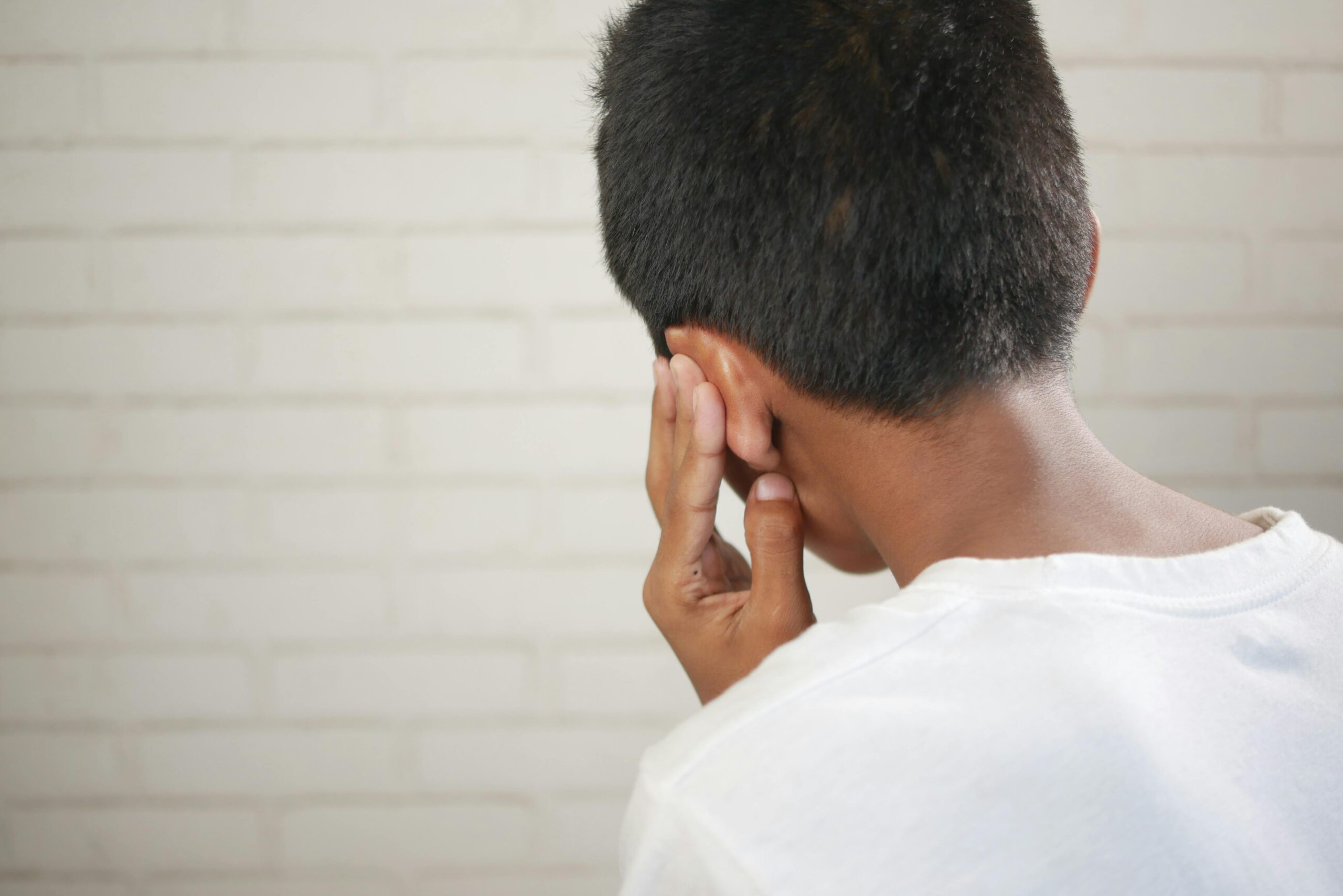Introduction
Can hearing aids cause dizziness? This question concerns many potential hearing aid users, and rightfully so. Experiencing dizziness after getting new hearing aids can be alarming. You’re not alone—approximately 15% of hearing aid users report balance-related issues during their initial adjustment period. Understanding whether hearing aids cause dizziness empowers you to make informed decisions about your hearing health while addressing concerns that might otherwise prevent you from enjoying improved hearing quality.
The relationship between hearing and balance is intricate, involving shared pathways in your inner ear. Therefore, changes to your auditory system can potentially affect your equilibrium. However, determining whether hearing aids cause dizziness requires careful examination of various factors affecting your experience. The answer to “can hearing aids cause dizziness” involves understanding both normal adjustment symptoms and concerning issues that need professional attention.

Table of Contents
Understanding the Hearing-Balance Connection
Most people think of hearing and balance as two completely separate senses. You hear with your ears and balance with your body, right? In reality, the two are closely linked. Both functions depend on structures inside the inner ear, and any problem in this area can affect not just how you hear but also how steady you feel. Understanding the hearing-balance connection is important for overall health, especially as we age.
The Inner Ear: Dual Role in Hearing and Balance
The inner ear is made up of two main parts: the cochlea and the vestibular system. The cochlea is responsible for converting sound waves into signals that the brain interprets as hearing. The vestibular system, which includes the semicircular canals and otolith organs, monitors head movements, position, and spatial orientation. These two systems share fluid-filled chambers and delicate hair cells that detect motion and vibration. Because they are so interconnected, a disorder in one often affects the other.
Common Conditions Affecting Both Hearing and Balance
Several conditions highlight the connection between hearing and balance:
- Meniere’s disease – Characterized by episodes of vertigo, hearing loss, tinnitus (ringing in the ears), and ear fullness.
- Vestibular neuritis – Inflammation of the balance nerve, often causing dizziness and sometimes temporary hearing issues.
- Acoustic neuroma – A benign tumor on the hearing and balance nerve, leading to hearing loss, imbalance, and sometimes tinnitus.
- Age-related changes – As we grow older, both hearing and balance naturally decline, increasing the risk of falls and communication difficulties.
Why This Connection Matters
When the hearing-balance system is disrupted, daily life can become challenging. Dizziness, vertigo, or unsteadiness may make walking difficult and increase the risk of falls. Meanwhile, hearing loss can limit communication and contribute to social isolation. Together, these issues can lower quality of life and even affect mental health.
For older adults, this connection is particularly important. Studies show that untreated hearing loss is associated with a higher risk of balance problems and falls. Since falls are a leading cause of injury in seniors, protecting ear health is a key part of staying independent.
Protecting Hearing and Balance Health
The good news is that you can take steps to support both hearing and balance:
Address problems early – Hearing aids, balance therapy, and medical treatments can prevent issues from getting worse.
Regular check-ups – See an audiologist or ENT specialist for hearing and balance evaluations.
Protect your ears – Avoid loud noise exposure and use ear protection when needed.
Stay active – Exercises like tai chi and yoga improve balance and coordination.
Eat well and stay hydrated – A healthy diet supports overall inner ear function.
Whispeara Review 2025: Does This Hearing Support Formula Really Work?
7 Primary Reasons Hearing Aids May Cause Dizziness
1. Initial Adjustment Period
According to research data from the National Institute on Deafness and Other Communication Disorders (NIDCD), approximately 5% of children in the United States have experienced dizziness or balance problems in the past year. However, studies examining hearing aid side effects note that while some participants experienced dizziness among other side effects, researchers concluded that very few participants specifically cited dizziness as a primary concern, and the negative side effects were considered mild by most people.
2. Improper Fitting
Most hearing aid-related dizziness occurs during the first two to four weeks of use. Your brain requires time to adapt to restored sound levels and frequencies. During this adjustment phase, you might experience mild disorientation as your auditory system recalibrates.
3. Incorrect Programming
Hearing aids programmed with inappropriate settings can overwhelm your auditory system. Excessive amplification or incorrect frequency adjustments may cause sensory overload, resulting in dizziness or disorientation. Professional audiologists must carefully calibrate devices to match your specific hearing profile.
4. Occlusion Effect
The occlusion effect occurs when hearing aids block your ear canal, creating a feeling of fullness or pressure. This sensation can affect your balance perception and cause mild dizziness. Modern hearing aids incorporate venting systems to minimize this effect.
5. Sound Localization Confusion
Hearing aids can initially disrupt your ability to determine sound direction and distance. Your brain relies on subtle auditory cues for spatial awareness, and changes to these cues can temporarily affect balance and orientation.
6. Psychological Factors
ZenCortex Review 2025: Does This Hearing Supplement Really Work for Tinnitus?

Anxiety about using new hearing aids or fear of falling can contribute to dizziness symptoms. Stress and worry can manifest physically, creating actual balance problems that compound adjustment difficulties.
7. Underlying Vestibular Issues
Pre-existing balance disorders may become more noticeable when hearing aids alter your auditory input. Conditions like benign paroxysmal positional vertigo (BPPV) or Meniere’s disease can interact with hearing aid use.
Pre-existing balance disorders may become more noticeable when hearing aids alter your auditory input. Conditions like benign paroxysmal positional vertigo (BPPV) or Meniere’s disease can interact with hearing aid use.
Frequently Asked Questions About Hearing Aids and Dizziness
How long does hearing aid dizziness typically last?
Most adjustment-related dizziness resolves within two to six weeks of consistent hearing aid use. However, persistent symptoms beyond this timeframe warrant professional evaluation.
Should I stop wearing my hearing aids if I feel dizzy?
Temporary removal during severe dizziness episodes is acceptable, but completely discontinuing use can prolong adjustment. Instead, gradually increase wearing time and consult your audiologist for proper guidance.
Can certain hearing aid styles cause more dizziness than others?
Behind-the-ear (BTE) models typically cause fewer balance issues compared to completely-in-canal (CIC) devices because they don’t completely occlude the ear canal. However, individual responses vary significantly.
Are there exercises to reduce hearing aid-related dizziness?
Balance rehabilitation exercises, head movements, and gradual exposure to various sound environments can help accelerate adjustment. Your audiologist or physical therapist can recommend specific techniques.
When should I seek medical attention for hearing aid dizziness?
Contact your healthcare provider if dizziness persists beyond six weeks, includes severe vertigo, causes falls, or accompanies other concerning symptoms like hearing loss changes or tinnitus.
This Hearing Supplement Really Work for Tinnitus?
Proven Strategies to Minimize Hearing Aid Dizziness
Start Gradually
Begin wearing hearing aids for short periods, gradually increasing duration over several weeks. This approach allows your brain to adapt progressively without overwhelming your sensory system.
Ensure Professional Fitting
Work exclusively with certified audiologists who can properly assess your hearing needs, fit devices correctly, and program appropriate settings. Professional expertise significantly reduces adjustment complications.
Practice Balance Exercises

Incorporate simple balance activities into your daily routine. Standing on one foot, walking heel-to-toe, or practicing tai chi can strengthen your vestibular system and reduce dizziness sensitivity.
Maintain Realistic Expectations
Understanding that adjustment takes time helps reduce anxiety and stress that can worsen dizziness symptoms. Most users report significant improvement within the first month of consistent use.
Regular Follow-up Appointments
Schedule regular check-ups with your audiologist to fine-tune settings, address concerns, and monitor your adaptation progress. Professional support accelerates successful adjustment.
External Resources and Professional Support
For comprehensive information about hearing and balance disorders, consult these authoritative sources:
National Institute on Deafness and Other Communication Disorders (NIDCD): Provides research-backed statistics and clinical guidance on hearing-related balance issues at nidcd.nih.gov
Johns Hopkins Center for Hearing and Balance: Offers evidence-based research on auditory and vestibular function at jhu-chb.org
When to Seek Professional Help

Persistent dizziness beyond the normal adjustment period requires immediate attention. Warning signs include severe vertigo, nausea, frequent falls, or worsening symptoms over time. These indicators may suggest underlying vestibular disorders requiring specialized treatment.
Persistent dizziness beyond the normal adjustment period requires immediate attention. Warning signs include severe vertigo, nausea, frequent falls, or worsening symptoms over time. These indicators may suggest underlying vestibular disorders requiring specialized treatment.
Additionally, if dizziness prevents you from safely performing daily activities or significantly impacts your quality of life, professional intervention becomes essential. Your audiologist can modify hearing aid settings, recommend alternative devices, or refer you to specialists for comprehensive evaluation. For immediate professional support, consider contacting certified audiologists through the American Speech-Language-Hearing Association (ASHA) directory.
The Bottom Line: Managing Expectations and Outcomes
Hearing aid-related dizziness is typically temporary and manageable with proper guidance and realistic expectations. While approximately 15% of users experience some balance-related symptoms initially, the vast majority successfully adapt within four to six weeks.
The key lies in working closely with qualified professionals, following recommended adjustment protocols, and maintaining patience during the adaptation process. Remember that improved hearing quality significantly enhances life satisfaction and safety, making temporary adjustment challenges worthwhile.
Conclusion
Hearing aids can indeed cause temporary dizziness, but this side effect rarely indicates serious problems or prevents successful hearing aid use. Understanding the underlying mechanisms, implementing proven adjustment strategies, and maintaining realistic expectations enable most users to overcome initial challenges successfully.
The connection between hearing and balance means that restoring your auditory function may initially affect your equilibrium. However, with professional support, gradual adjustment, and proper device fitting, you can minimize discomfort while maximizing the life-changing benefits of improved hearing. Don’t let fear of temporary dizziness prevent you from addressing hearing loss. The long-term advantages of better hearing—including improved safety, enhanced communication, and increased social engagement—far outweigh short-term adjustment challenges. Take the first step toward better hearing health by consulting with a qualified audiologist today. Find certified professionals in your area through the Better Hearing Institute’s provider directory




